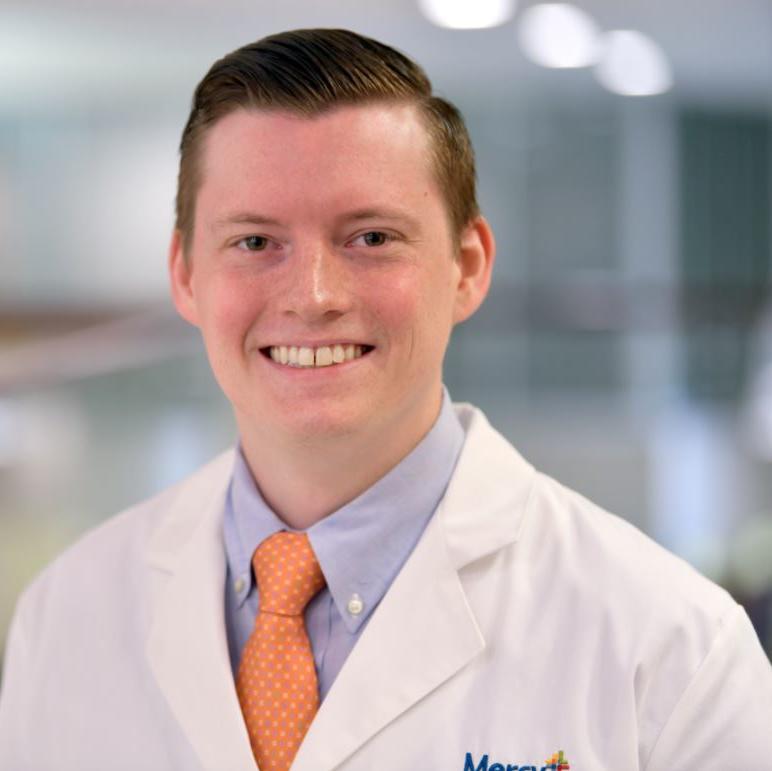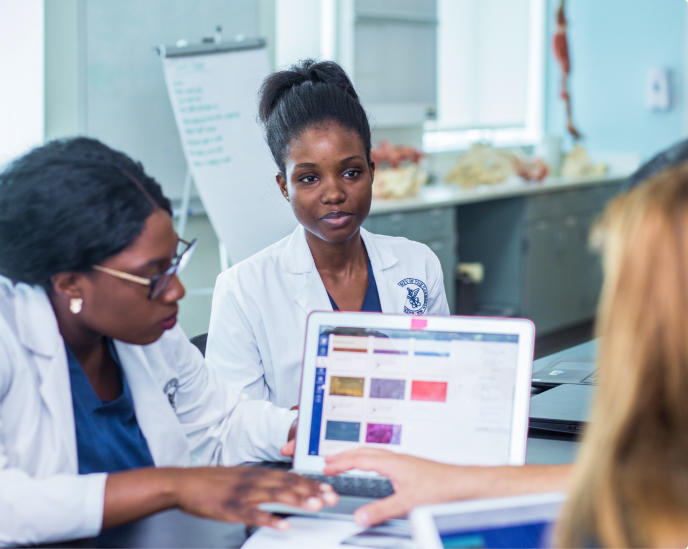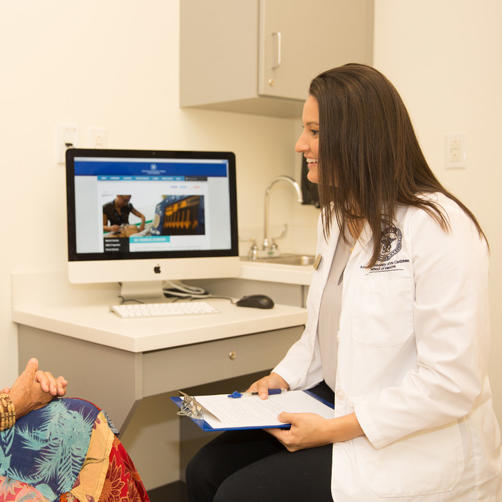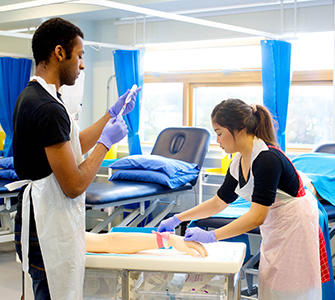Men and women share many of the same health issues and challenges. But women also face a range of health concerns all their own.
Women’s bodies undergo unique hormone-regulated cycles and processes such as menstruation and menopause. Reproductive issues—including fertility and birth control—are a major concern for women of child-bearing age. Women also need to be screened for certain diseases, including cancers of the breast and pelvic organs. Pregnant mothers require some of the most complex and delicate care in medicine.
What is an OB/GYN?
Administering to the unique medical needs of women is the specialty of the OB/GYN. But what does OB/GYN stand for? An OB/GYN, meaning obstetrician gynecologist, is a medical doctor who combines two disciplines: obstetrics and gynecology. Gynecology is the care of a woman’s reproductive organs and health. Obstetrics involves the treatment of pregnant women, including the delivery of babies.
Obstetrician gynecologists play a critical role in women’s healthcare. In fact, an OB/GYN may be the only doctor that many young women see on a regular basis. For this reason, many obstetrician gynecologists offer a broad range of medical services, even serving as primary care providers.
OBSTETRICS VS. GYNECOLOGY
Unlike many other specialties, the OB/GYN definition combines two related but distinct practices. Some obstetrician gynecologists specialize in obstetrics, spending nearly all their time dealing with pregnancy and related issues. Others specialize in gynecology, focusing their practice on the needs of women who are not pregnant. But most obstetrician gynecologists are generalists, spending some part of their time dealing with general women’s health and the rest working with pregnant mothers.
WHAT DOES AN OB/GYN DO?
An obstetrician gynecologist provides women’s health services, particularly those medical services related to the reproductive organs. These include the breasts and the organs of the pelvis, such as the vagina, uterus, ovaries, and fallopian tubes.
Medical experts generally recommend that a young woman begin to visit a gynecologist around the age of 13 to 15, after the onset of menstruation and before first sexual intercourse. Many women continue to see a gynecologist at least once a year through menopause (the process that marks the end of menstruation) and beyond.
Women may also visit a gynecologist if they experience unusual or severe cramping; changes in menstruation; pain during sex; or frequent, involuntary, or painful urination. A woman may seek out gynecological care if she thinks she may have a sexually transmitted infection (STI), such as gonorrhea, chlamydia, or syphilis. A woman should see an obstetrician gynecologist if she suspects she may be pregnant or has had a miscarriage.
Gynecological visits vary with the patient’s age and physical condition. They generally begin with a review of the patient’s medical history and questions about general health. A nurse may measure and weigh the patient, check blood pressure, and collect blood or urine samples for testing.
The obstetrician gynecologist generally conducts a physical examination, including an examination of the breasts and pelvis. During a pelvic exam, a doctor may collect cells from the cervix to test for cervical cancer (called a pap smear) and human papillomavirus (HPV).
Obstetrician gynecologists treat a range of women’s health problems using a combination of medication, therapy, and surgery. They may treat such urinary issues as urinary tract infections and incontinence. They may also treat abnormal bleeding, genital itching, and hormone disorders. OB/GYN’s provide a range of preventive care services, including birth control and immunizations.
Obstetricians see women at regular intervals throughout pregnancy. They provide help with pregnancy planning, prenatal care, and advice on diet. An obstetrician may order or conduct ultrasound tests to assess a fetus’s health and development. An obstetrician usually oversees the birthing process. Obstetricians also provide postpartum care (care after birth) for the mother. Following birth, the child is generally looked after by another specialist, the pediatrician.
Obstetrician gynecologists are trained to perform a variety of surgical procedures. They may perform an operation called a cesarean section or use a range of other techniques to facilitate childbirth. They may also conduct a hysterectomy (removal of the uterus), remove growths such as ovarian cysts and uterine fibroids, or repair pelvic organ injuries. They may perform a number of procedures related to fertility, including in vitro fertilization and sterilization.
SUBSPECIALTIES IN OBSTETRICS AND GYNECOLOGY
According to the American College of Surgeons, about 90 percent of obstetrician gynecologists are generalists. However, the American Board of Obstetrics and Gynecology recognizes a number of subspecialties.
- Gynecologic oncology involves the treatment of cancers of the reproductive organs.
- Maternal-fetal medicine deals with the care of high-risk pregnancies.
- Female pelvic medicine and reconstruction involves the treatment of problems of the pelvic organs, including urinary incontinence and overactive bladder.
- Reproductive endocrinology concerns the treatment of infertility and of such problems as endometriosis.
HOW TO BECOME AN OB/GYN
To be an OB/GYN, you must first become a physician by graduating from an accredited medical school—such as American University of the Caribbean School of Medicine* (AUC). The path to a medical degree at AUC, which is located on the Caribbean island of St. Maarten, is the same as at United States-based schools: two years of medical science classes and two years of hands-on clinical training. For AUC students, the medical sciences curriculum is completed at the St. Maarten campus; the clinical training can be completed at affiliated teaching hospitals in the United States or in the United Kingdom.
AUC also partners with the University of Central Lancashire (UCLan) in the United Kingdom for a “UK-track” option. The first two years at UCLan focus on studying the medical sciences. Upon completion, students receive a Post Graduate Diploma in International Medical Sciences, which AUC recognizes as equivalent to its own medical sciences curriculum. During the final two years, students can then complete clinical training across AUC’s network of affiliated teaching hospitals.
During clinical training, AUC students complete core rotations in internal medicine, surgery, pediatrics, family medicine, obstetrics/ gynecology, and psychiatry. Each individual student, then, selects from among dozens of specialty elective clerkships to fulfill their remaining clinical requirements.
During the fourth and final year of medical school, students prepare for the next phase of their medical education: residency. At AUC, the Office of Career Advisement (OCA) can help students determine which residency specialty—such as obstetrics and gynecology—suits them best. The OCA then helps students navigate the National Resident Matching Program® (NRMP®)—a placement system which medical students who wish to become licensed in the United States use to “match” with a medical residency. Residencies are required to become a licensed physician, and they last from three to eight years. An obstetrics and gynecology residency is typically four years.
In 2021, AUC had a first-time residency attainment rate of 92 percent for 2020-2021 graduates—on par with the overall match rate (92.8 percent) for medical schools in the United States. In recent years, AUC MD’s have matched with obstetrics and gynecology residencies at such hospitals as Beaumont Hospital in Michigan; Bridgeport Hospital in Connecticut; LSU Health Shreveport Academic Medical Center in Louisiana; and Memorial Hospital West in Florida.
After the successful completion of OB/GYN training, a doctor may be certified by the American Board of Obstetrics and Gynecology (ABOG). A board-certified OB/GYN may then become a Fellow of the American College of Obstetricians and Gynecologists (FACOG). Doctors who want to subspecialize in a specific area of obstetrics/ gynecology must take additional fellowship training.
MEET AND OBSTETRICS AND GYNECOLOGY PHYSICIAN (OB/GYN)
Charles Albritton, MD, a 2015 graduate of AUC, is an OB/GYN at Mercy Clinic in Springfield, MO. We asked Dr. Albritton to describe the role of an OB/GYN.
Q: Why did you decide to go into your specialty?
A: I had the fortunate problem of enjoying every specialty I rotated through in medical school. I enjoyed the continuity and relationships that were developed between primary care physicians and their patients, but also the instant gratification of the OR. During my OB/GYN rotation, I found the field offered the best of both worlds. You have the opportunity to manage chronic medical conditions during pregnancy such as hypertension, diabetes, and thyroid disorders, but also surgically manage gynecologic conditions such as abnormal uterine bleeding. Having the mix of medical and surgical was very appealing to me and is what ultimately drew me to the specialty.
Q: Any advice to medical students considering the specialty?
A: My best piece of advice to all medical students (considering OB/GYN or not) is to keep an open mind. Don't rule out any specialty until you've done the rotation. For those specifically considering OB/GYN, I would encourage you to do as much research about the specialty as possible. While it is a demanding and time-consuming specialty, it continues to evolve (for the better). With the addition of OB Hospitalists in more and more hospitals, lifestyle continues to improve. The field is becoming more competitive so study hard and do good on your USMLE exams.
Q: What’s the most rewarding part of your job?
A: I haven't found anything in medicine more rewarding than delivering babies. Helping new parents navigate pregnancy and then being present when they meet their little one for the first time is indescribable.
YOUR CAREER AS AN OB/GYN
An obstetrician gynecologist treats some of the most personal and sensitive health problems. The specialty thus requires a great deal of empathy and sensitivity. An OB/GYN must also have good communication skills to answer questions about pregnancy, sex, reproductive health, and fertility.
Overseeing labor and delivery requires calm nerves and confidence in decision-making. Performing surgery requires steady hands.
Obstetrician gynecologists may work in solo or private practice or as part of a larger medical group or hospital. Most OB/GYN’s split their time between the office, where they see patients, and the hospital or clinic, where they perform surgical procedures and deliveries.
Childbirth and emergencies can occur at any time. For this reason, an obstetrician gynecologist must be flexible. They must also be prepared to work long hours under stressful conditions and to share in on-call duties during nights and weekends.
Obstetrics and gynecology is a demanding career. But it offers the opportunity to help women with their overall health and reproductive issues. OB/GYN’s regularly save the lives of mothers and babies. Bringing new life into the world can be one of the most rewarding experiences in medicine.
Obstetrics and gynecology is also a high demand career. According to Study.com, job growth for OB/GYN’s is expected to outpace that for physicians as a whole. The American Association of Medical Colleges(AAMC) acknowledges a shortage of obstetrician gynecologists that could grow to more than 20,000 by 2050.
Now that you know what obstetricians and gynecologists do, are you interested in a high-demand career helping women and bringing new life into the world? Apply to the AUC School of Medicine.
Related resources:






